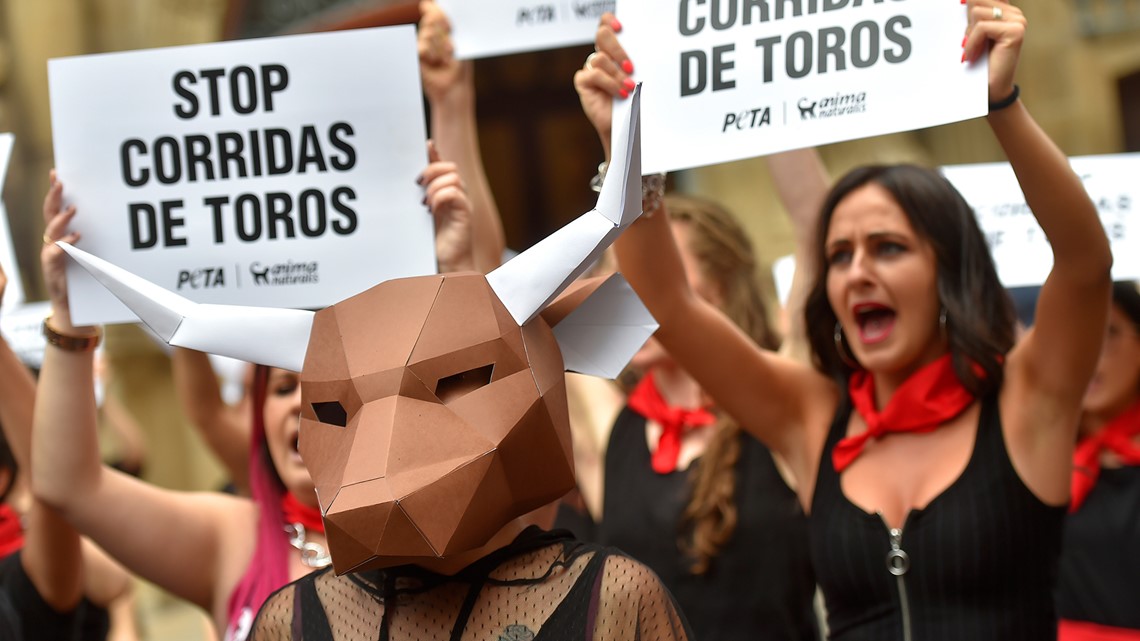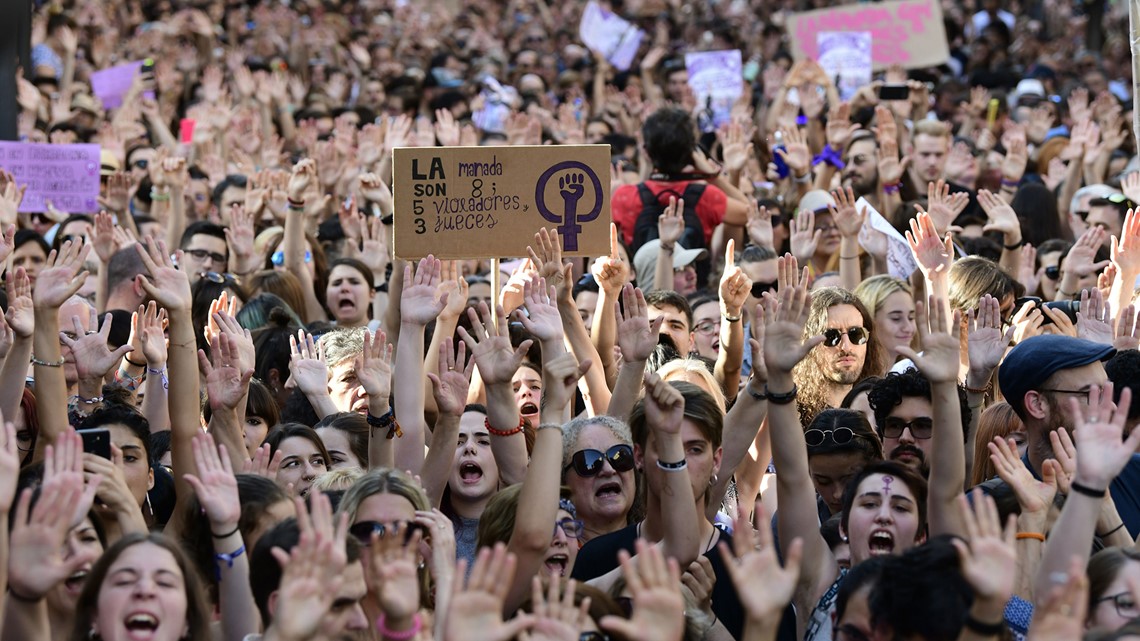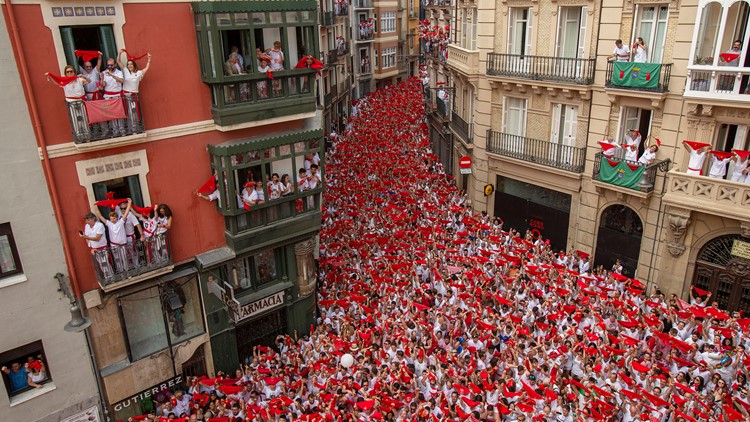The controversial San Fermin festival, also known as the running of the bulls, kicks off Friday in Pamplona, Spain. The annual festival, which originally honored the first bishop of Pamplona, St. Fermin, will run from July 6-14.
What happens at the festival?
Traditionally, thousands risk their lives during "bull-runs," or encierros, in which participants, who must be over 18 years old, race bulls over 930-yards to the city's bullrings. The runs begin on Pamplona's Santo Domingo Street and finish just over a half-mile away in the Plaza de Toros, where the bullpen is located.
For some speedy runners, the course only takes a few minutes to complete. Participants who make it to the bullpen first typically continue to run around the arena with the bulls to music and cheers.
In the afternoons, crowds gather to watch bullfighters fight the animals, who almost always kill them. Millions flock to Pamplona each year for bull racing and bullfighting at festivals throughout the summer.
Each year, dozens of people are injured at the event, usually trampled by the bulls. Last year, 12 people, including four Americans, were gored during the bull runs. Since record-keeping began in 1924, 15 people have died from being gored at the festival.
What other events take place at the running of the bulls?
The festival also hosts multiple parades, including the Riau-Riau and the Saint Fermin procession. At the opening ceremony, known as El Chupinazo, a rocket is launched and wine is sprayed over the large crowds that gather outside Pamplona's city hall.
Festival attendants wear all white with a red scarf — a Pañuelico — to honor San Fermin. Red is customarily associated with honoring saints in Spanish religious traditions in addition to being the color of the matador, or the bullfighter.


'Wolf Pack' case
This year, the event faces protests in reaction to what has become known as the "Wolf Pack" case. On July 7, 2016, a young woman was raped by five men after attending the festival. The case is named after the men's WhatsApp group name, where they shared video they took during the attack.
In April, demonstrators took to the streets across Spain to protest after the men were acquitted of sexual assault and instead charged with the lesser crime of sexual abuse. Each will serve nine years imprisonment and must pay the woman approximately $12,000 each, according to the Guardian.
The case has drawn international criticism because the judge did not admit video taken of the assault or messages exchanged between the men that detailed drugging and raping other women as evidence. However, photographs taken by a private investigator of the victim smiling with friends days after the attack were allowed.
Protesters plan to use the running of the bulls as another opportunity to raise concerns about the case. Crowds of women on Wednesday protested in the streets of Pamplona and wore all black to draw attention to the case, according to the AFP.
According to El País, a Spanish newspaper, some are planning to continue these protests by wearing black instead of the traditional white to the opening ceremony.
Many local Pamplona feminist groups, like the Navarra Platform for Women Against Sexual Violence, Farrukas and Emakume Internazionalistak, are encouraging people to participate in the festival by wearing white, but adding a purple scarf in addition to the traditional red one to show solidarity with sexual assault victims.
“These are our fiestas, we lay down the rules and we have to demand a space in them: filling the squares, laughing, dancing, organizing them … enjoying and reveling as we see fit,” the groups said in a press release.


Animal rights concerns
The festival also attracts protests from animal rights organizations, including People for the Ethical Treatment of Animals (PETA) and Spanish group AnimaNaturalis.
The groups claim workers use electric prods and sharp sticks to agitate the bulls before releasing them for the race. They also protest the widespread deaths of the bulls after the races during bullfights.
PETA on Thursday protested in the same square where El Chupinazo will take place. The rights group filled the square with red smoke and held signs in Spanish, English, Arabic and other languages saying "Stop the Bloody Bullfights" and "Stop Corridas De Toros," which means stop bullfighting.
In 2010, Catalonia, an autonomous region in northeastern Spain, banned bullfighting. At the time, polling showed that 60 percent of Spaniards said they didn't like bullfighting, but 57 percent also said they opposed the ban because it was a rejection of Spanish tradition. In 2016, Spain's constitutional court overturned the ban on bullfighting, declaring it unconstitutional.



